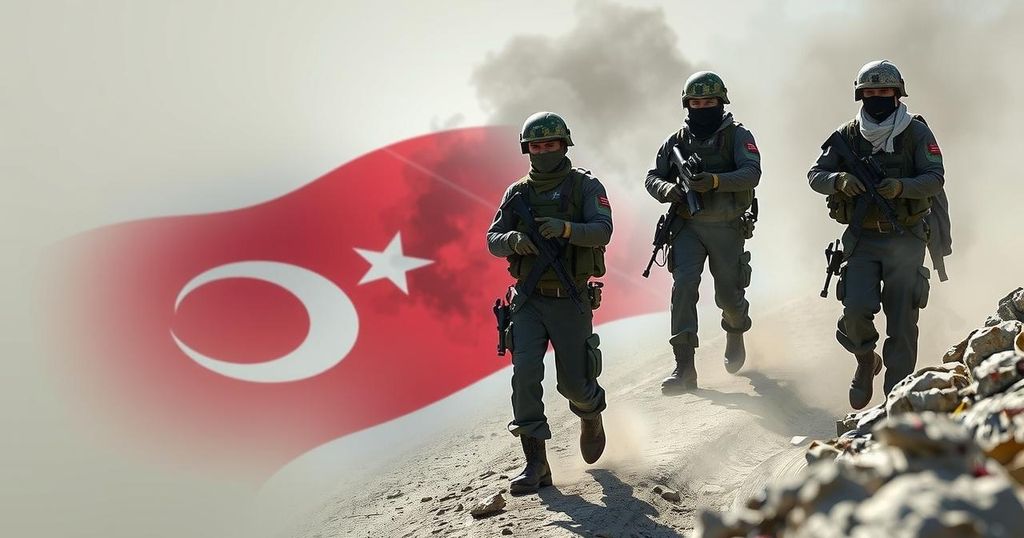Turkey’s Stance on Kurdish Militia Threat: A Commitment to National Security

Turkey’s Foreign Minister, Hakan Fidan, indicated that Turkey will take any necessary action to safeguard its security if the new Syrian government fails to deal with the Kurdish militia issue perceived as a threat. Following significant military developments after Assad’s fall, Turkey is pushing for a resolution aligned with Syria’s territorial integrity. Fidan’s comments reflect the challenges in U.S.-Kurdish relations amid ongoing Turkish military operations.
On December 21, Turkish Foreign Minister Hakan Fidan articulated that Turkey is prepared to take any necessary measures to ensure its national security if the newly formed Syrian administration fails to address Ankara’s apprehensions regarding U.S.-aligned Kurdish groups. Fidan identified the YPG, which leads the Syrian Democratic Forces (SDF) backed by the U.S., as a terrorist organization, linked to the PKK, a group involved in a long-standing insurgency against Turkey. Following Bashar al-Assad’s recent ousting, Turkey and its allied Syrian factions have intensified military actions, leading to significant territorial gains against the SDF.
Fidan stressed Turkey’s preference for a diplomatic resolution that respects Syria’s territorial integrity, asserting the need for the YPG’s immediate disbandment. He indicated that should these expectations remain unmet, Turkey would prioritize its national security, hinting at a potential military response. Furthermore, he stated that the SDF should pursue negotiations with the Damascus administration rather than with Ankara amidst this evolving geopolitical landscape.
Amid ongoing Turkish operations against Kurdish factions in northern Syria, Turkey continues to press the United States to cease its support for the SDF, which has been pivotal in combating ISIS from 2014 to 2017. Fidan expressed concerns regarding the increased presence of U.S. troops in Syria, questioning the rationale behind their deployment in the context of combating ISIS. He remarked that the struggle against ISIS is focused merely on managing its detained members. Additionally, Fidan mentioned past collaborations with the jihadist group Hayat Tahrir al-Sham against Islamic State forces. He concluded that Turkey does not support the presence of any foreign military bases in Syria, advocating for the preferences of the Syrian populace regarding governance and foreign presence.
The geopolitical dynamics in Syria are exceedingly complex, particularly following the recent destabilization resulting from the ousting of Bashar al-Assad. The Syrian Democratic Forces, predominantly comprised of YPG fighters, have been supported by the U.S. in their fight against ISIS, which has positioned them in direct opposition to Turkish interests. Turkey’s long-standing conflict with the PKK informs its stance on the YPG, as Turkey considers both groups as intertwined, threatening its national security. The evolution of alliances and hostilities post-Assad’s fall has intensified military actions, warranting urgent dialogues on territorial sovereignty and the management of militant threats in the region.
In conclusion, Turkey’s commitment to securing its national interests in the face of perceived threats from Kurdish militant groups is resolute, as articulated by Foreign Minister Hakan Fidan. The urgency for a cooperative approach between the Syrian administration and Turkey is evident, with any failure to resolve these tensions potentially leading to military action by Ankara. The ongoing changes in the Syrian landscape demand reassessment of alliances, foreign presence, and strategies to ensure regional stability and security.
Original Source: www.euractiv.com







